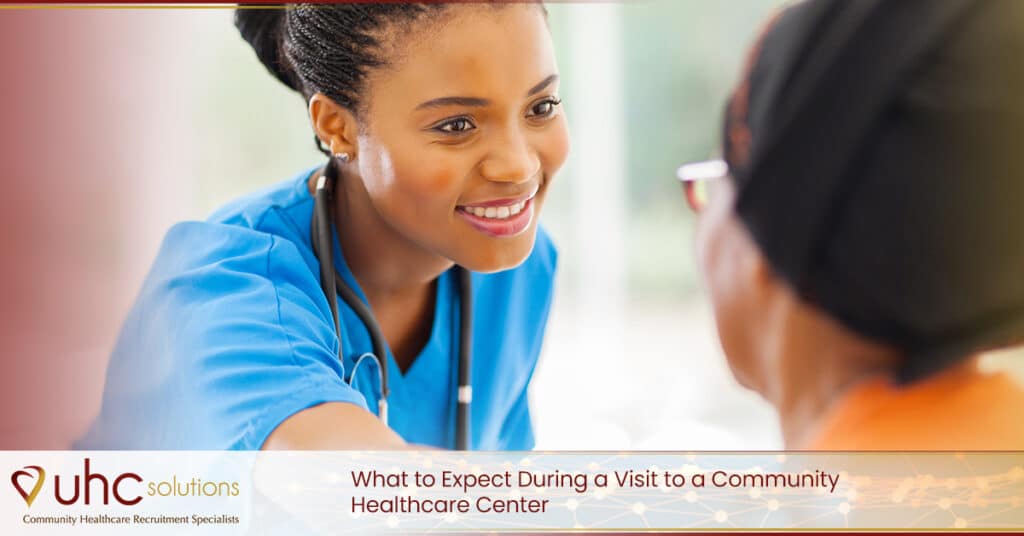Community healthcare centers are crucial in providing accessible and comprehensive healthcare services to individuals and communities. If you are planning a visit to a community healthcare center, it’s essential to know what to expect to make the most of your visit and ensure a positive healthcare experience. This article will outline what you can anticipate during a visit to a community healthcare center.
Your First Visit to an FQHC
Visiting a community healthcare center involves steps designed to assess your health needs, diagnose and treat them, and support your overall well-being. By understanding what to expect during a visit, you can be better prepared, actively engage with your healthcare provider, and make the most of the available services and resources. Here’s what you can expect during that process.
Welcoming Reception
Upon arrival at a community healthcare center, you will be greeted by a receptionist or front desk staff who will assist you with the check-in process. They will ask you to provide basic information, such as your name, contact details, and reason for the visit. This initial step helps ensure that your records are up to date and that you are directed to the appropriate healthcare provider or service.
Medical History and Intake
After check-in, you may be asked to complete a medical history form or provide information about your current health status. This information is vital for healthcare providers to understand your medical background, any pre-existing conditions, medications you are taking, and any allergies or sensitivities. Providing accurate and detailed information will help healthcare providers assess your health needs effectively.
Vital Signs Assessment
As part of the initial assessment, a healthcare professional, such as a nurse or medical assistant, will measure your vital signs. This process typically includes checking your blood pressure, heart rate, temperature, and respiratory rate. These measurements provide important baseline information about your overall health and help healthcare providers monitor any changes or abnormalities during your visit.
Consultation with Healthcare Provider
Once your vital signs are assessed, you will have a consultation with a healthcare provider. This practitioner could be a physician, nurse practitioner, physician assistant, or other qualified healthcare professional. During the consultation, the healthcare provider will discuss your medical history, symptoms, concerns, and any questions. They will perform a physical examination and may order diagnostic tests or screenings to evaluate your condition further.
Diagnosis and Treatment Plan
Based on the consultation and any diagnostic tests, your community healthcare provider will provide a diagnosis or preliminary assessment of your condition. They will explain the findings, discuss potential treatment options, and develop a treatment plan tailored to your needs. This process may include prescribing medications, recommending lifestyle changes, providing referrals to specialists, or scheduling follow-up appointments.
Additional Services and Support
Community healthcare organizations often offer a range of services beyond primary care. Depending on your needs, you may have access to services such as dental care, mental health counseling, preventive screenings, immunizations, and chronic disease management programs. The healthcare provider or staff will inform you about any additional services available and how to access them.
Patient Education and Resources
Community healthcare centers prioritize patient education and empowerment. During your visit, healthcare providers and staff will share information about your condition, treatment options, preventive care, and self-management strategies. They may offer educational materials, resources, or referrals to support groups or community programs to help you better understand and manage your health.
Follow-Up and Continuity of Care
If further appointments or follow-up visits are needed, the community healthcare provider or staff will help you schedule them. They will provide instructions on any necessary preparations, such as fasting before a test or bringing specific documents to your next visit. Ensuring continuity of care is an important aspect of community healthcare centers, and they will work with you to ensure you receive the necessary ongoing support.
Looking to deliver a superior patient experience?
UHC Solutions works within the community health field to provide these organizations with clinical and administrative staff. If you enjoyed visiting your local community provider, consider a career in the FQHC field. Talk with UHC Solutions about your options.








